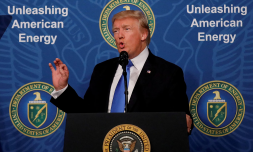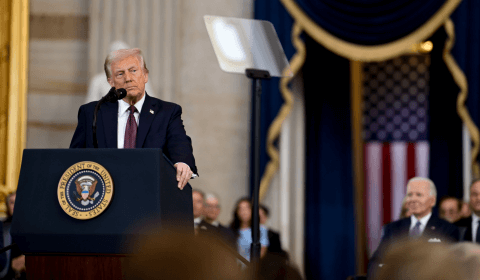With tensions in the Middle East reaching boiling point, Iran intends to escalate the situation globally by taking steps to shut down the Strait of Hormuz, a critical maritime point for oil trade.
Just days ago, the United States decided to dip its feet into the currently disordered Middle East by organising strikes against Iran’s nuclear facilities. Their aim, similar to that of their ally, Israel, was to delay the development of Iran’s nuclear program.
These strikes follow over a week of escalating conflict between Israel and Iran over the latter’s nuclear capabilities, which has garnered international concerns over the past few decades.
In response to the US strikes, Iran started to take efforts to close the Strait of Hormuz, a vital global choke point for oil exports.
What is the Strait of Hormuz?
The strait lies between the Persian Gulf and the Gulf of Oman, extending out to the open ocean. As such, it is the primary export route for oil and gas-rich nations like Saudi Arabia, Iran, Iraq, Kuwait, Qatar, and the United Arab Emirates. Additionally, 20% of the world’s oil consumption passes through this key region.
Most of the shipping lanes in the strait run through Oman’s territorial waters. However, some parts of it are within Iran’s territory, particularly the northern side. Hence, the nation has established a significant military presence within its share of the region, comprising naval vessels, anti-ship missiles, and fast-attack boats. All of these assets are to ensure that Iran has maximum power to exert control and its influence over the maritime point.
Closing the strait
Following US attacks on its nuclear facilities, the Iranian parliament endorsed the motion to close its part of the strait. Their rationale was that such a move would ‘punish the enemy’, thereby escalating pressure on the US and its allies. However, the strait has not been closed yet, as the final decision to do so lies with Iran’s Supreme National Security Council and Supreme Leader.
Currently, the US has less direct dependence on energy resources from Gulf nations. It still has a strong interest in ensuring the free flow of these resources to global markets. This is crucial for maintaining stability in the global economy. As a result, US Secretary of State Marco Rubio urged China to pressure Iran against closing the Strait of Hormuz. Rubio specifically appealed to China for assistance because of its strong ties with Iran, being one of the largest purchasers of Iranian oil and a key ally.
After the US appealed, the Eastern nation criticised American involvement in the conflict. It went on to stress the importance of reaching a ceasefire and avoiding any potential harm to the global economy.




















